Podcast: Play in new window | Download (Duration: 13:05 — 9.1MB) | Embed
Subscribe: Apple Podcasts | Spotify | Amazon Music | Android | Pandora | iHeartRadio | JioSaavn | Podchaser | Gaana | Podcast Index | Email | TuneIn | Deezer | Anghami | RSS | More
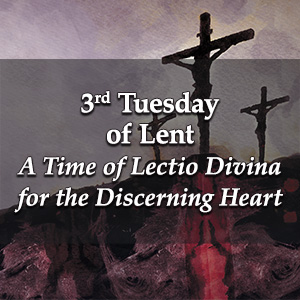 3rd Tuesday of Lent – A Time of Lectio Divina for the Discerning Heart Podcast
3rd Tuesday of Lent – A Time of Lectio Divina for the Discerning Heart Podcast
As you begin, take a deep breath and exhale slowly. For at least the next few moments, surrender all the cares and concerns of this day to the Lord.
Say slowly from your heart “Jesus, I Trust In You…You Take Over”
Become aware that He is with you, looking upon you with love, wanting to be heard deep within in your heart…
From the Holy Gospel of St. Matthew 18:21-35
Peter went up to Jesus and said, ‘Lord, how often must I forgive my brother if he wrongs me? As often as seven times?’ Jesus answered, ‘Not seven, I tell you, but seventy-seven times.
‘And so the kingdom of heaven may be compared to a king who decided to settle his accounts with his servants. When the reckoning began, they brought him a man who owed ten thousand talents; but he had no means of paying, so his master gave orders that he should be sold, together with his wife and children and all his possessions, to meet the debt. At this, the servant threw himself down at his master’s feet. “Give me time” he said “and I will pay the whole sum.” And the servant’s master felt so sorry for him that he let him go and cancelled the debt. Now as this servant went out, he happened to meet a fellow servant who owed him one hundred denarii; and he seized him by the throat and began to throttle him. “Pay what you owe me” he said. His fellow servant fell at his feet and implored him, saying, “Give me time and I will pay you.” But the other would not agree; on the contrary, he had him thrown into prison till he should pay the debt. His fellow servants were deeply distressed when they saw what had happened, and they went to their master and reported the whole affair to him. Then the master sent for him. “You wicked servant,” he said “I cancelled all that debt of yours when you appealed to me. Were you not bound, then, to have pity on your fellow servant just as I had pity on you?” And in his anger the master handed him over to the torturers till he should pay all his debt. And that is how my heavenly Father will deal with you unless you each forgive your brother from your heart.’
What word made this passage come alive for you?
What did you sense the Lord saying to you?
Once more give the Lord an opportunity to speak to you:
Peter went up to Jesus and said, ‘Lord, how often must I forgive my brother if he wrongs me? As often as seven times?’ Jesus answered, ‘Not seven, I tell you, but seventy-seven times.
‘And so the kingdom of heaven may be compared to a king who decided to settle his accounts with his servants. When the reckoning began, they brought him a man who owed ten thousand talents; but he had no means of paying, so his master gave orders that he should be sold, together with his wife and children and all his possessions, to meet the debt. At this, the servant threw himself down at his master’s feet. “Give me time” he said “and I will pay the whole sum.” And the servant’s master felt so sorry for him that he let him go and cancelled the debt. Now as this servant went out, he happened to meet a fellow servant who owed him one hundred denarii; and he seized him by the throat and began to throttle him. “Pay what you owe me” he said. His fellow servant fell at his feet and implored him, saying, “Give me time and I will pay you.” But the other would not agree; on the contrary, he had him thrown into prison till he should pay the debt. His fellow servants were deeply distressed when they saw what had happened, and they went to their master and reported the whole affair to him. Then the master sent for him. “You wicked servant,” he said “I cancelled all that debt of yours when you appealed to me. Were you not bound, then, to have pity on your fellow servant just as I had pity on you?” And in his anger the master handed him over to the torturers till he should pay all his debt. And that is how my heavenly Father will deal with you unless you each forgive your brother from your heart.’
What did your heart feel as you listened?
What did you sense the Lord saying to you?
Once more, through Him, with Him and in Him listen to the Word:
Peter went up to Jesus and said, ‘Lord, how often must I forgive my brother if he wrongs me? As often as seven times?’ Jesus answered, ‘Not seven, I tell you, but seventy-seven times.
‘And so the kingdom of heaven may be compared to a king who decided to settle his accounts with his servants. When the reckoning began, they brought him a man who owed ten thousand talents; but he had no means of paying, so his master gave orders that he should be sold, together with his wife and children and all his possessions, to meet the debt. At this, the servant threw himself down at his master’s feet. “Give me time” he said “and I will pay the whole sum.” And the servant’s master felt so sorry for him that he let him go and cancelled the debt. Now as this servant went out, he happened to meet a fellow servant who owed him one hundred denarii; and he seized him by the throat and began to throttle him. “Pay what you owe me” he said. His fellow servant fell at his feet and implored him, saying, “Give me time and I will pay you.” But the other would not agree; on the contrary, he had him thrown into prison till he should pay the debt. His fellow servants were deeply distressed when they saw what had happened, and they went to their master and reported the whole affair to him. Then the master sent for him. “You wicked servant,” he said “I cancelled all that debt of yours when you appealed to me. Were you not bound, then, to have pity on your fellow servant just as I had pity on you?” And in his anger the master handed him over to the torturers till he should pay all his debt. And that is how my heavenly Father will deal with you unless you each forgive your brother from your heart.’
What touched your heart in this time of prayer?
What did your heart feel as you prayed?
What do you hope to carry with you from this time with the Lord?
Our Father, who art in heaven,
hallowed be thy name.
Thy kingdom come.
Thy will be done on earth, as it is in heaven.
Give us this day our daily bread,
and forgive us our trespasses,
as we forgive those who trespass against us,
and lead us not into temptation,
but deliver us from evil.
Amen

 Fr. Timothy Gallagher and Kris McGregor discuss “pre-event desolation,” a form of spiritual discouragement before significant spiritual activities. They highlight its tactics by the enemy to deter individuals from growth opportunities. Drawing from C.S. Lewis’s “Perelandra,” he tells us of the importance of recognizing and countering this desolation with prayer and trust.
Fr. Timothy Gallagher and Kris McGregor discuss “pre-event desolation,” a form of spiritual discouragement before significant spiritual activities. They highlight its tactics by the enemy to deter individuals from growth opportunities. Drawing from C.S. Lewis’s “Perelandra,” he tells us of the importance of recognizing and countering this desolation with prayer and trust.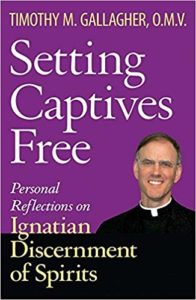

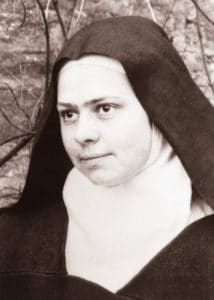
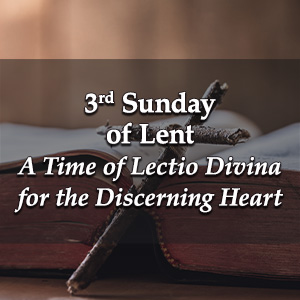 3rd Sunday of Lent – A Time of Lectio Divina for the Discerning Heart Podcast
3rd Sunday of Lent – A Time of Lectio Divina for the Discerning Heart Podcast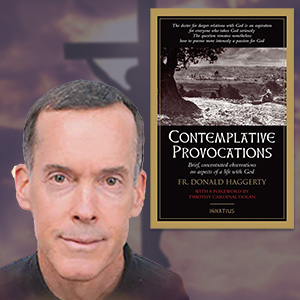
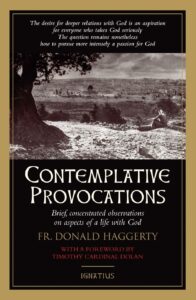
 I cannot recommend this book and the work of Joel Stepanek more highly! Based on the great Litany of Humility, “Chasing Humility: 8 Ways to Shape a Christian Heart” is a game-changer in the formation of the Christian heart. It’s no wonder St. Teresa of Calcutta had her Missionaries of Charity pray this prayer every morning (and they still do)! It’s a challenging prayer when you first contemplate exactly what it is you are asking of the Lord. But if you trust in the fruits which it brings into your life, your spiritual journey will never be the same. Run, don’t walk, to get this book! A modern-day spiritual classic!
I cannot recommend this book and the work of Joel Stepanek more highly! Based on the great Litany of Humility, “Chasing Humility: 8 Ways to Shape a Christian Heart” is a game-changer in the formation of the Christian heart. It’s no wonder St. Teresa of Calcutta had her Missionaries of Charity pray this prayer every morning (and they still do)! It’s a challenging prayer when you first contemplate exactly what it is you are asking of the Lord. But if you trust in the fruits which it brings into your life, your spiritual journey will never be the same. Run, don’t walk, to get this book! A modern-day spiritual classic!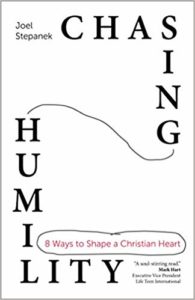
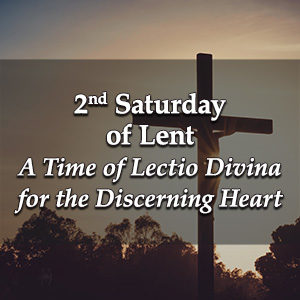 2nd Saturday of Lent – A Time of Lectio Divina for the Discerning Heart Podcast
2nd Saturday of Lent – A Time of Lectio Divina for the Discerning Heart Podcast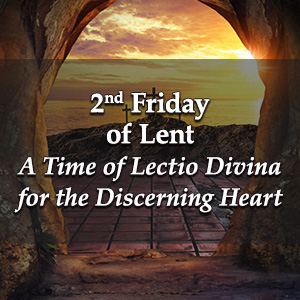 2nd Friday of Lent – A Time of Lectio Divina for the Discerning Heart Podcast
2nd Friday of Lent – A Time of Lectio Divina for the Discerning Heart Podcast